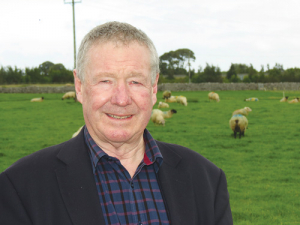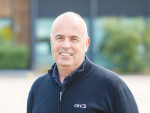Beef + Lamb NZ Genetics is looking at how Ireland improves herd genetics, in a bid to improve the way it delivers genetic information to NZ farmers.
Ireland’s genetics delivery, said to be the world’s best, was ironically, led by Kiwi geneticist, Dr Brian Wickham for 14 years. Rural News reporter Peter Burke met a delegation from NZ during their visit to Teagasc Research Farm at Athenry, near Galway, in Ireland’s west...
The fields of Athenry are the subject of a famous Irish song; but it’s the cattle and sheep of Athenry and, in particular, the researchers there at Teagasc who may hold one part of the code for unlocking better use of genetics in NZ.
New Zealand’s delegation to Ireland consisted of BLNZ Genetics chairman Chris Kelly, chief executive Graham Alder and two world-class New Zealand geneticists: Dorian Garrick, working in the USA but due to join Massey University next year, and Brian Wickham, in Ireland since 1998 and now dividing his time 50/50 between Ireland and in NZ working as a private consultant.
Teagasc somewhat resembles MAF before it was split up and AgResearch appeared, but it has no education or farm advisory services.
The day at Athenry was spent at presentations by Teagasc scientists led by Dr Michael Diskin. We briefly saw some sheep in a comparison with Irish animals, but the trip was taken chiefly to learn about organisational structure and programme delivery.
Kelly says genetics is another instance of NZ dropping the ball. In the 1950’s, he says, NZ led this field with such famous contributors as Coop and Peren. Now BLNZ is seeking to refresh the way it delivers genetics to commercial farmers.
Dorian Garrick says Ireland understood the opportunity for greater genetic improvement years ago, hence hiring Brian Wickham to sort it out. Garrick says often people who invent a product do not make the best use of their achievement. Rather, those who follow may avoid the mistakes of the innovator, as in the case of Ireland.
“In the 1990s the Irish had a lot of scientists retiring and no young scientists were working in the genetics space. So they worked to reinvent themselves and did a better job than NZ has been doing in recent years. They have overtaken us and represent the world’s best practice for the collection and the analysis of data to generate information and knowledge.
“In NZ we still have fragmented systems – different systems for dairy cattle from those of sheep or beef cattle – the beef cattle systems are serparate for breed association and they are not exploiting crossbred data.”
Ireland under Wickham’s leadership has created one organisation, the Irish Cattle Breeding Federation (ICBF). Now Ireland has a database containing each of its animals, individually identified, from which it gets carcase information on every animal killed in meat plants.
“They can use all that data for genetic improvement, while NZ still has a fragmented system with multiple databases,” Garrick says. “We are here to learn how they developed and structured the ICBF which incorporates sheep, beef and dairy and how they link that information to the needs of research providers and farmers.”
Graham Alder says the Ireland trip has been to look at how the Irish have organised their programme infrastructure to deliver genetics to Irish farmers. BLNZ Genetics is interested in ICBF and how that’s set up, administered and funded, and the services it offers.
“Overall we aspire to improving the genetic merit of the NZ sheep and beef populations, and we are here to try to find ways to create more profitability for our farmers. We need to work with both breeders and farmers alike and not just focus on the stud industry ti improve the genetic merit of sheep and beef.
“Ultimately, our customers are commercial farmers and we want them to get more profit by using the best genetics for beef and lamb.”
Kelly say NZ has undersold genetics in the last few years; he believes it will take a long time for sheep and beef farmers to fully embrace genetics; a huge paradigm shift is needed. (Dairy is different, he acknowledges.)
“It will take a generational change; many young sheep and beef farmers now understand the power of genetics; it will take a generation, but the young farmers really keen on profit can see the power of genetics and, as they take over their parents’ farms, they will embrace this new era.”
• Peter Burke is in Ireland as a guest of Enterprise Ireland.











